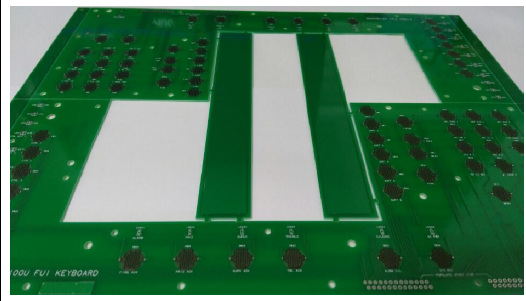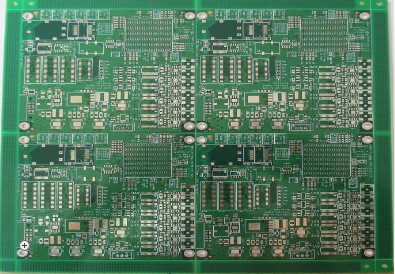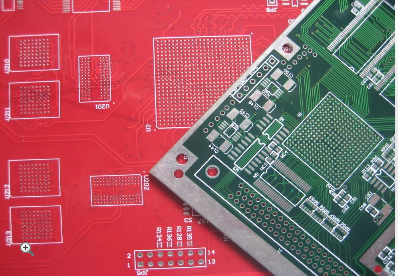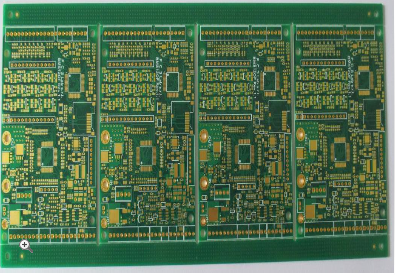-
 Agriculture
Agriculture
-
 Health-Care
Health-Care
-
 Environment
Environment
-
 Construction-Real-Estate
Construction-Real-Estate
-
 Tools-Hardware
Tools-Hardware
-
 Home-Garden
Home-Garden
-
 Furniture
Furniture
-
 Luggage-Bags-Cases
Luggage-Bags-Cases
-
 Medical-devices-Supplies
Medical-devices-Supplies
-
 Gifts-Crafts
Gifts-Crafts
-
 Sports-Entertainment
Sports-Entertainment
-
 Food-Beverage
Food-Beverage
-
 Vehicles-Transportation
Vehicles-Transportation
-
 Power-Transmission
Power-Transmission
-
 Material-Handling
Material-Handling
-
 Renewable-Energy
Renewable-Energy
-
 Safety
Safety
-
 Testing-Instrument-Equipment
Testing-Instrument-Equipment
-
 Construction-Building-Machinery
Construction-Building-Machinery
-
 Pet-Supplies
Pet-Supplies
-
 Personal-Care-Household-Cleaning
Personal-Care-Household-Cleaning
-
 Vehicle-Accessories-Electronics-Tools
Vehicle-Accessories-Electronics-Tools
-
 School-Office-Supplies
School-Office-Supplies
-
 Packaging-Printing
Packaging-Printing
-
 Mother-Kids-Toys
Mother-Kids-Toys
-
 Business-Services
Business-Services
-
 Commercial-Equipment-Machinery
Commercial-Equipment-Machinery
-
 Apparel-Accessories
Apparel-Accessories
-
 Security
Security
-
 Shoes-Accessories
Shoes-Accessories
-
 Vehicle-Parts-Accessories
Vehicle-Parts-Accessories
-
 Jewelry-Eyewear-Watches-Accessories
Jewelry-Eyewear-Watches-Accessories
-
 Lights-Lighting
Lights-Lighting
-
 Fabric-Textile-Raw-Material
Fabric-Textile-Raw-Material
-
 Fabrication-Services
Fabrication-Services
-
 Industrial-Machinery
Industrial-Machinery
-
 Consumer-Electronics
Consumer-Electronics
-
 Electrical-Equipment-Supplies
Electrical-Equipment-Supplies
-
 Electronic-Components-Accessories-Telecommunications
Electronic-Components-Accessories-Telecommunications
-
 Home-Appliances
Home-Appliances
-
 Beauty
Beauty
-
 Chemicals
Chemicals
-
 Rubber-Plastics
Rubber-Plastics
-
 Metals-Alloys
Metals-Alloys
- Masonry Materials
- Curtain Walls & Accessories
- Earthwork Products
- Fireproofing Materials
- Heat Insulation Materials
- Plastic Building Materials
- Building Boards
- Soundproofing Materials
- Timber
- Waterproofing Materials
- Balustrades & Handrails
- Bathroom & Kitchen
- Flooring & Accessories
- Tiles & Accessories
- Door, Window & Accessories
- Fireplaces & Stoves
- Floor Heating Systems & Parts
- Stairs & Stair Parts
- Ceilings
- Elevators & Escalators
- Stone
- Countertops, Vanity Tops & Table Tops
- Mosaics
- Metal Building Materials
- Multifunctional Materials
- Ladders & Scaffoldings
- Mouldings
- Corner Guards
- Decorative Films
- Formwork
- Building & Industrial Glass
- Other Construction & Real Estate
- Wallpapers/Wall panels
- HVAC System & Parts
- Outdoor Facilities
- Prefabricated Buildings
- Festive & Party Supplies
- Bathroom Products
- Household Sundries
- Rain Gear
- Garden Supplies
- Household Cleaning Tools & Accessories
- Lighters & Smoking Accessories
- Home Storage & Organization
- Household Scales
- Smart Home Improvement
- Home Textiles
- Kitchenware
- Drinkware & Accessories
- Dinnerware, Coffee & Wine
- Home Decor
- Golf
- Fitness & Body Building
- Amusement Park Facilities
- Billiards, Board Game,Coin Operated Games
- Musical Instruments
- Outdoor Affordable Luxury Sports
- Camping & Hiking
- Fishing
- Sports Safety&Rehabilitation
- Ball Sports Equipments
- Water Sports
- Winter Sports
- Luxury Travel Equipments
- Sports Shoes, Bags & Accessories
- Cycling
- Other Sports & Entertainment Products
- Artificial Grass&Sports Flooring&Sports Court Equipment
- Scooters
- Food Ingredients
- Honey & Honey Products
- Snacks
- Nuts & Kernels
- Seafood
- Plant & Animal Oil
- Beverages
- Fruit & Vegetable Products
- Frog & Escargot
- Bean Products
- Egg Products
- Dairy Products
- Seasonings & Condiments
- Canned Food
- Instant Food
- Baked Goods
- Other Food & Beverage
- Meat & Poultry
- Confectionery
- Grain Products
- Feminie Care
- Hair Care & Styling
- Body Care
- Hands & Feet Care
- Hygiene Products
- Men's Grooming
- Laundry Cleaning Supplies
- Travel Size & Gift Sets
- Room Deodorizers
- Other Personal Care Products
- Pest Control Products
- Special Household Cleaning
- Floor Cleaning
- Kitchen & Bathroom Cleaning
- Oral Care
- Bath Supplies
- Yellow Pages
- Correction Supplies
- Office Binding Supplies
- Office Cutting Supplies
- Board Erasers
- Office Adhesives & Tapes
- Education Supplies
- Pencil Cases & Bags
- Notebooks & Writing Pads
- File Folder Accessories
- Calendars
- Writing Accessories
- Commercial Office Supplies
- Pencil Sharpeners
- Pens
- Letter Pad/Paper
- Paper Envelopes
- Desk Organizers
- Pencils
- Markers & Highlighters
- Filing Products
- Art Supplies
- Easels
- Badge Holder & Accessories
- Office Paper
- Printer Supplies
- Book Covers
- Other Office & School Supplies
- Stationery Set
- Boards
- Clipboards
- Stamps
- Drafting Supplies
- Stencils
- Electronic Dictionary
- Books
- Map
- Magazines
- Calculators
- Baby & Toddler Toys
- Educational Toys
- Classic Toys
- Dress Up & Pretend Play
- Toy Vehicle
- Stuffed Animals & Plush Toys
- Outdoor Toys & Structures
- Balloons & Accessories
- Baby Food
- Children's Clothing
- Baby Supplies & Products
- Maternity Clothes
- Kids Shoes
- Baby Care
- Novelty & Gag Toys
- Dolls & Accessories
- Puzzle & Games
- Blocks & Model Building Toys
- Toddler Clothing
- Baby Clothing
- Kids' Luggage & Bags
- Arts, Crafts & DIY Toys
- Action & Toy Figures
- Baby Appliances
- Hobbies & Models
- Remote Control Toys
- Promotional Toys
- Pregnancy & Maternity
- Hygiene Products
- Kid's Textile&Bedding
- Novelty & Special Use
- Toy Weapons
- Baby Gifts
- Baby Storage & Organization
- Auto Drive Systems
- ATV/UTV Parts & Accessories
- Marine Parts & Accessories
- Other Auto Parts
- Trailer Parts & Accessories
- Auto Transmission Systems
- Train Parts & Accessories
- Universal Parts
- Railway Parts & Accessories
- Auto Brake Systems
- Aviation Parts & Accessories
- Truck Parts & Accessories
- Auto Suspension Systems
- Auto Lighting Systems
- New Energy Vehicle Parts & Accessories
- Auto Steering Systems
- Wheels, Tires & Accessories
- Bus Parts & Accessories
- Auto Performance Parts
- Cooling System
- Go-Kart & Kart Racer Parts & Accessories
- Air Conditioning Systems
- Heavy Duty Vehicle Parts & Accessories
- Auto Electrical Systems
- Auto Body Systems
- Auto Engine Systems
- Container Parts & Accessories
- Motorcycle Parts & Accessories
- Refrigeration & Heat Exchange Equipment
- Machine Tool Equipment
- Food & Beverage Machinery
- Agricultural Machinery & Equipment
- Apparel & Textile Machinery
- Chemical Machinery
- Packaging Machines
- Paper Production Machinery
- Plastic & Rubber Processing Machinery
- Industrial Robots
- Electronic Products Machinery
- Metal & Metallurgy Machinery
- Woodworking Machinery
- Home Product Manufacturing Machinery
- Machinery Accessories
- Environmental Machinery
- Machinery Service
- Electrical Equipment Manufacturing Machinery
- Industrial Compressors & Parts
- Tobacco & Cigarette Machinery
- Production Line
- Used Industrial Machinery
- Electronics Production Machinery
- Other Machinery & Industrial Equipment
- Camera, Photo & Accessories
- Portable Audio, Video & Accessories
- Television, Home Audio, Video & Accessories
- Video Games & Accessories
- Mobile Phone & Accessories
- Electronic Publications
- Earphone & Headphone & Accessories
- Speakers & Accessories
- Smart Electronics
- TV Receivers & Accessories
- Mobile Phone & Computer Repair Parts
- Chargers, Batteries & Power Supplies
- Used Electronics
- VR, AR, MR Hardware & Software
- Projectors & Presentation Equipments
- Other Consumer Electronics
- Cables & Commonly Used Accessories
- Computer Hardware & Software
- Displays, Signage and Optoelectronics
- Discrete Semiconductors
- Wireless & IoT Module and Products
- Telecommunications
- Connectors, Terminals & Accessories
- Development Boards, Electronic Modules and Kits
- Circuit Protection
- Sensors
- Isolators
- Audio Components and Products
- Integrated Circuits
- Power Supplies
- Relays
- RF, Microwave and RFID
- Electronic Accessories & Supplies
- Passive Components
- PCB & PCBA
- Air Quality Appliances
- Home Appliance Parts
- Heating & Cooling Appliances
- Small Kitchen Appliances
- Laundry Appliances
- Water Heaters
- Water Treatment Appliances
- Refrigerators & Freezers
- Personal Care & Beauty Appliances
- Major Kitchen Appliances
- Cleaning Appliances
- Second-hand Appliances
- Smart Home Appliances
- Other Home Appliances
- Energy Chemicals
- Inorganic Chemicals
- Basic Organic Chemicals
- Agrochemicals
- Admixture & Additives
- Catalysts & Chemical Auxiliary Agents
- Pigments & Dyestuff
- Coating & Paint
- Daily Chemicals
- Polymer
- Organic Intermediate
- Adhesives & Sealants
- Chemical Waste
- Biological Chemical Products
- Surface Treatment Chemicals
- Painting & Coating
- Chemical Reagents
- Flavor & Fragrance
- Non-Explosive Demolition Agents
- Other Chemicals
- Custom Chemical Services
High Quality Polyimide FPC Boards Offering Superior Flexibility and Thermal Stability
In the rapidly evolving world of electronics, where devices are becoming increasingly compact and powerful, the demand for reliable and adaptable circuit boards has never been higher. High Quality Polyimide FPC Boards Offering Superior Flexibility and Thermal Stability stand out as a groundbreaking solution, addressing the limitations of traditional rigid printed circuit boards (PCBs). These flexible circuits, crafted from advanced polyimide materials, are engineered to bend, twist, and fold without compromising electrical performance, making them indispensable in modern applications from smartphones to aerospace technology. Their exceptional thermal stability ensures consistent operation even under extreme temperature fluctuations, a critical feature for high-performance systems. This article delves into the unique properties and advantages of these innovative boards, providing a comprehensive understanding of why they are revolutionizing the electronics industry and enabling the next generation of technological advancements.
Unmatched Flexibility and Durability
The core advantage of High Quality Polyimide FPC Boards lies in their extraordinary flexibility, which allows them to conform to complex shapes and tight spaces that rigid boards cannot accommodate. This property is achieved through the use of polyimide as the base substrate, a material known for its high tensile strength and resistance to fatigue. Unlike conventional FR-4 boards, which are brittle and prone to cracking under stress, polyimide FPCs can withstand repeated bending cycles—often exceeding millions of flexes—without failure. This makes them ideal for dynamic applications where movement is constant, such as in folding smartphones, wearable health monitors, or robotic joints.
Moreover, the durability of these boards extends beyond mere bending. They are designed to resist mechanical stresses like vibration and shock, which are common in automotive or industrial environments. The layered construction, often incorporating adhesives and protective coatings, enhances their resilience against physical damage. For instance, in automotive systems, polyimide FPCs are used in dashboard displays and engine control units, where they must endure harsh conditions without degrading. This combination of flexibility and robustness not only prolongs the lifespan of electronic devices but also opens up new possibilities for innovative product designs that prioritize space efficiency and reliability.
Superior Thermal Stability for High-Temperature Applications
Another standout feature of High Quality Polyimide FPC Boards is their exceptional thermal stability, which enables them to perform reliably across a wide temperature range, typically from -200°C to over 400°C. Polyimide materials possess a high glass transition temperature (Tg) and low coefficient of thermal expansion (CTE), meaning they maintain their structural integrity and electrical properties even when subjected to intense heat. This is crucial in applications like aerospace avionics or downhole drilling equipment, where circuits are exposed to extreme temperatures that would cause conventional boards to delaminate or fail.
In addition to withstanding high temperatures, these boards excel in thermal management, dissipating heat efficiently to prevent overheating and ensure long-term stability. This is achieved through advanced manufacturing techniques, such as incorporating thermal vias or using copper cladding with high thermal conductivity. For example, in LED lighting systems or power electronics, polyimide FPCs help distribute heat evenly, reducing the risk of hot spots that could lead to component failure. This thermal resilience not only enhances safety but also supports the trend toward miniaturization, as it allows for denser circuit layouts without compromising performance in demanding environments.
Enhanced Electrical Performance and Signal Integrity
High Quality Polyimide FPC Boards are engineered to deliver superior electrical characteristics, including low dielectric constant and dissipation factor, which contribute to minimal signal loss and high-frequency performance. This makes them particularly suitable for high-speed data transmission applications, such as in telecommunications infrastructure or advanced computing systems. The consistent electrical properties of polyimide ensure that signals remain clear and undistorted, even when the boards are flexed or exposed to temperature variations.
Furthermore, the precision in manufacturing these boards allows for fine-pitch traces and high-density interconnects, enabling more complex circuits in a smaller footprint. This is vital for modern electronics like medical imaging devices or Internet of Things (IoT) sensors, where space is at a premium and reliability is paramount. The use of polyimide also reduces parasitic capacitance and crosstalk, improving overall signal integrity. As a result, designers can achieve faster data rates and better performance, pushing the boundaries of what is possible in electronic innovation while maintaining flexibility and thermal resilience.
Applications Across Diverse Industries
The versatility of High Quality Polyimide FPC Boards has led to their adoption in a wide array of industries, each benefiting from their unique combination of flexibility, thermal stability, and electrical excellence. In consumer electronics, they are integral to devices like foldable tablets and smartwatches, where they enable sleek, lightweight designs without sacrificing functionality. For instance, in a smartphone's hinge mechanism, polyimide FPCs allow for seamless connectivity between components while enduring daily folding actions.
Beyond consumer goods, these boards play a critical role in more demanding sectors. In the medical field, they are used in implantable devices such as pacemakers or hearing aids, where biocompatibility and long-term reliability are essential. The automotive industry relies on them for advanced driver-assistance systems (ADAS) and electric vehicle powertrains, where they must handle high temperatures and vibrations. Similarly, in aerospace and defense, polyimide FPCs are employed in satellites and military equipment, ensuring performance in extreme conditions. This broad applicability underscores their value as a foundational technology driving progress across multiple domains.
Environmental and Cost-Efficiency Benefits
Despite their advanced properties, High Quality Polyimide FPC Boards also offer significant environmental and economic advantages. Their lightweight nature reduces the overall weight of electronic assemblies, which can lead to energy savings in applications like automotive or aerospace, where every gram counts. Additionally, polyimide is a halogen-free material, making these boards more environmentally friendly compared to some traditional alternatives that contain harmful substances.
From a cost perspective, while the initial investment in polyimide FPCs may be higher than rigid boards, their long-term benefits often result in lower total cost of ownership. Their durability reduces the need for frequent replacements, and their flexibility can simplify assembly processes, cutting down on labor and material costs. For example, in mass production of consumer electronics, the ability to integrate multiple functions into a single flexible board can streamline manufacturing and reduce waste. This combination of sustainability and efficiency makes them a smart choice for companies aiming to balance performance with environmental responsibility and economic viability.
REPORT































































































































































































































































































































































































































































































































































































